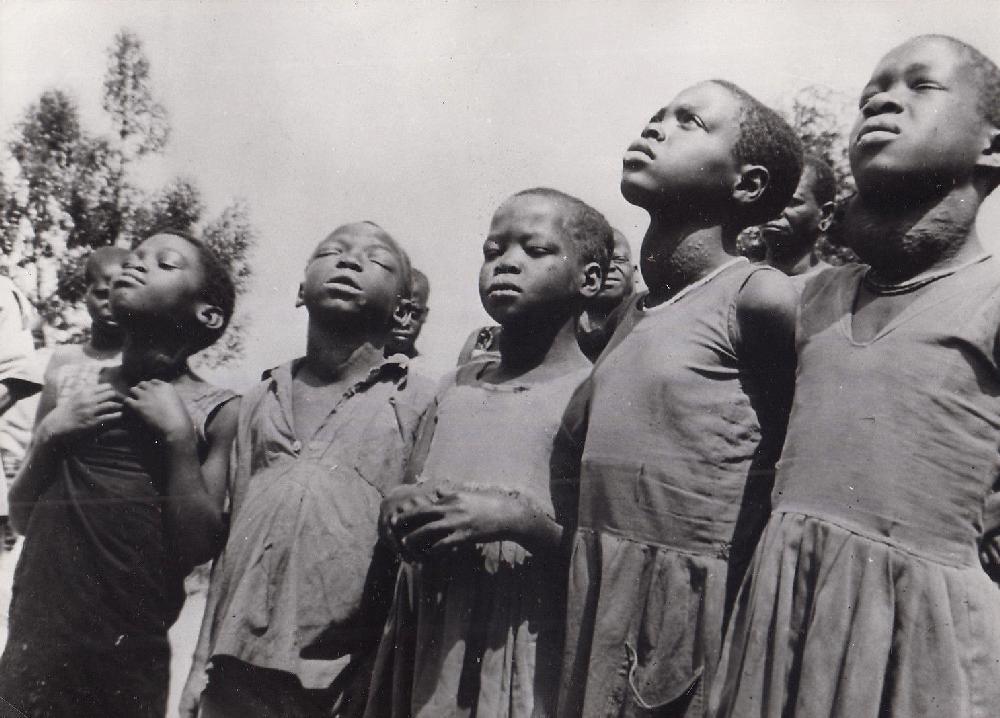
United Nations Agencies: The World Health Organization--Participating Countries

Figure 1.-- Goitre is one of the malnutrition diseases attacked by WHO. Here are children suffering from the dusease in East Africa (1979). The WHO caption read, "Goitre, the result of chronic iodine shortage in diet and drinking water, affects entire communities. Schoolchildren with the typical swollen necks in an East African village."
|
|
There are two types of countries involved in the United Nations and WHO--developed and developing countries. The first group of countries are the developed industrial powers like America, Europe, Japan, and the newly successful countries (the Asian Tigers, China, India, and others) which have dynamic economies because of the adoption of capitalist market reforms. These are countries with effective health care systems. The utilize WHO serrvices in working on coordinating medical actions that require multi national efforts like wiping out diseases such as polio, smallpox, and others and to prevent pandemics. These are efforts that require multi-national efforts. Within this group there are capitalist and Communist countries (the Soviet Uniin and now China). It is not able that all of the innovation with new drugs and procedures came from capitalist counties. Comminist countries improved health conditions with policies like public sanutatin and wider use of existing medical technology although this was limited by the economic stagnation. The Communist countries made virtually no advances in medical science. The second group of coutries are those which need assistance in developing effective health care systems. The range of assustance needed varies widely wihin this group. The counties most in need of asiatance are the newly indepedent counties of Africa (1960s-70s). The bright hopes of independence for the most part were not achieved. There are a range of reasons for this, but primarily because the regins leaders failed to moce toward freedom, both political (democracy) and economiv (capitalism). \For the most part the first genreration of leaders just assumed independence and the adoption of socialist ecomomic policies would automativally lead to prosperity. It did not. And without economic success, a country is unavle to fuinance an effective public health system.
CIH

Navigate the Children in History Website:
[Return to the Main WHO page]
[Return to the Main United Nations agency page]
[Return to the Main United Nations page]
[Return to the Main Internation Organization page]
[Return to the Main history page]
[Introduction]
[Biographies]
[Chronology]
[Climatology]
[Clothing]
[Disease and Health]
[Economics]
[Geography]
[History]
[Human Nature]
[Law]
[Nationalism]
[Presidents]
[Religion]
[Royalty]
[Science]
[Social Class]
[Bibliographies]
[Contributions]
[FAQs]
[Glossaries]
[Images]
[Links]
[Registration]
[Tools]
[Children in History Home]
Created: 7:22 PM 6/7/2016
Last updated: 11:05 AM 3/1/2019



